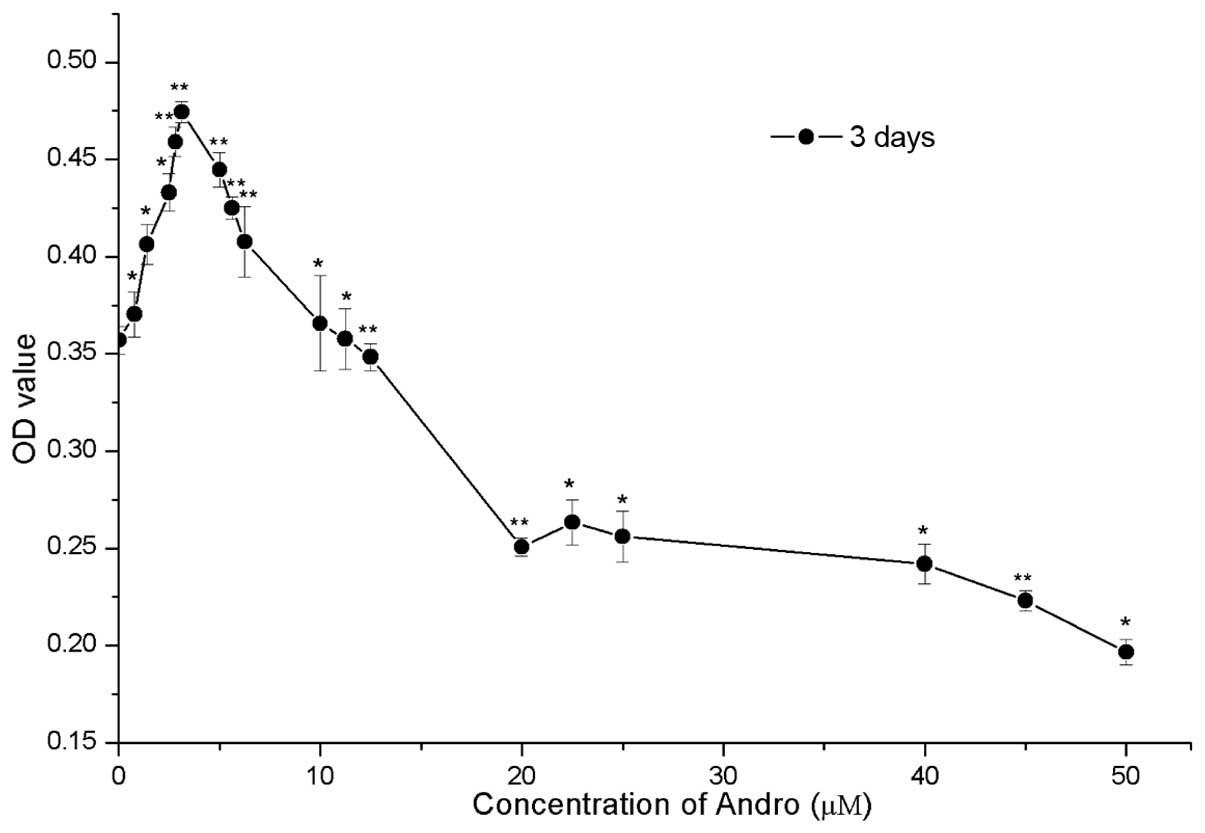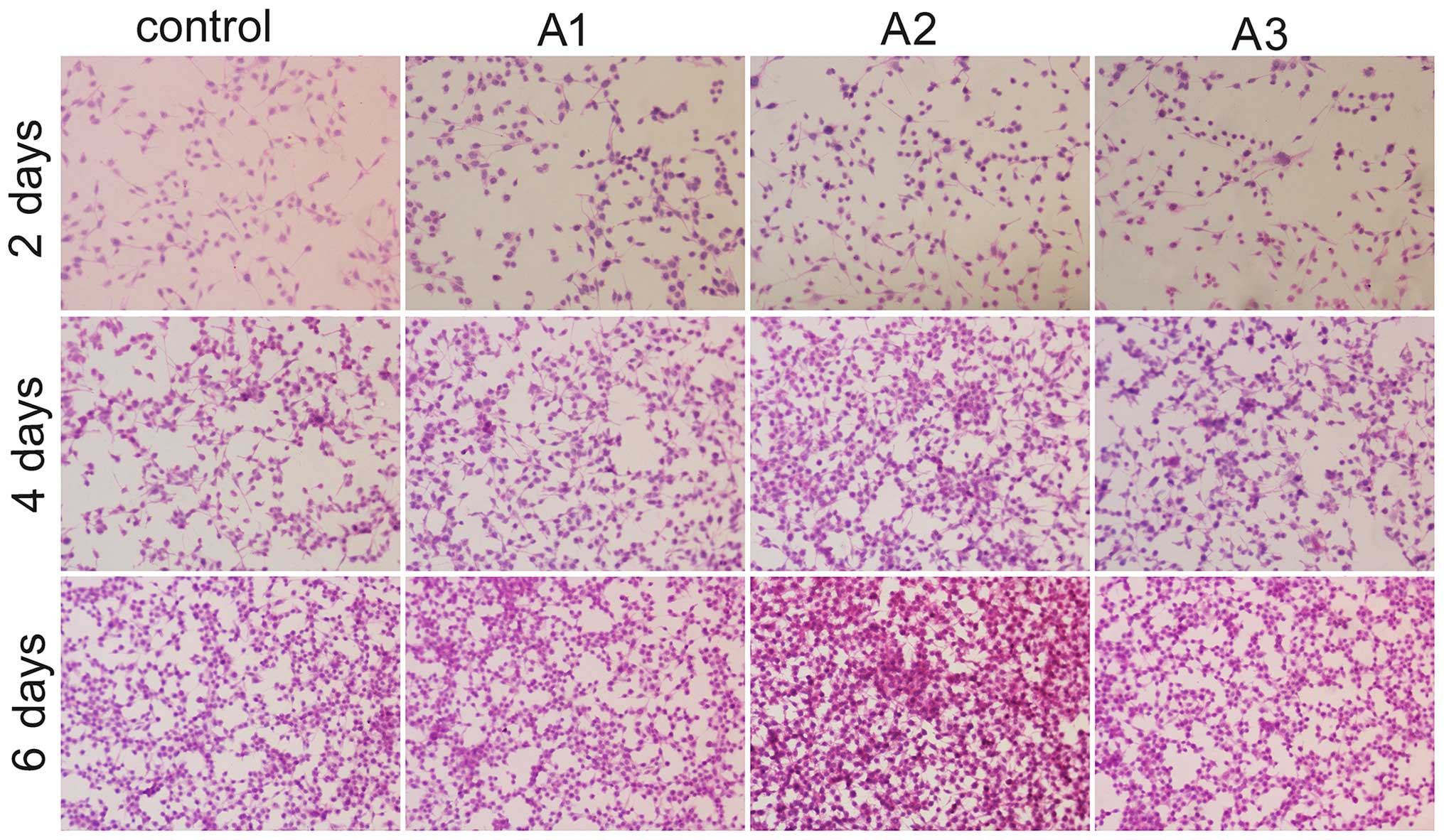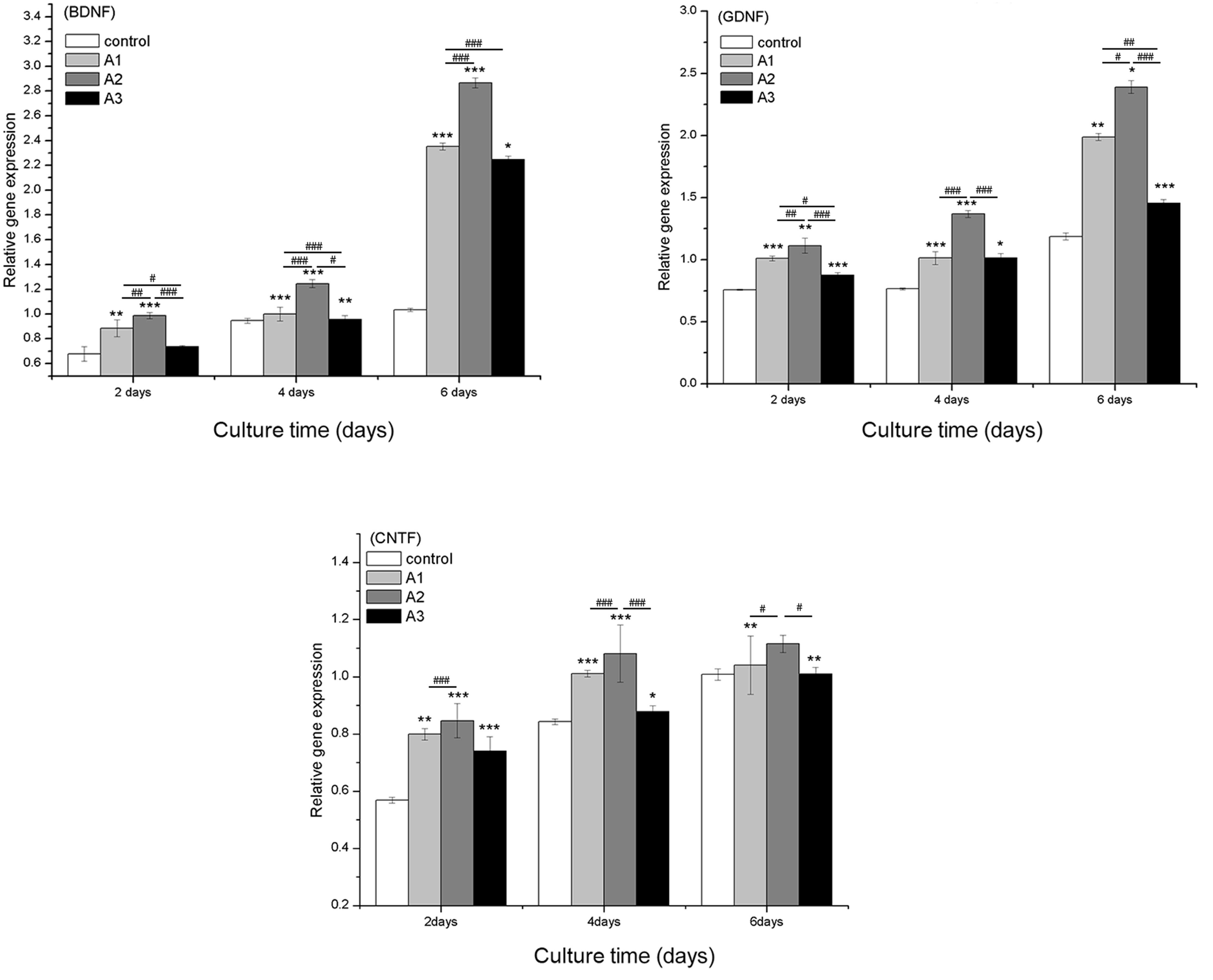|
1
|
Lundborg G: A 25-year perspective of
peripheral nerve surgery: Evolving neuroscientific concepts and
clinical significance. J Hand Surg Am. 25:391–414. 2000. View Article : Google Scholar : PubMed/NCBI
|
|
2
|
Robinson LR: Traumatic injury to
peripheral nerves. Suppl Clin Neurophysiol. 57:173–186. 2004.
View Article : Google Scholar
|
|
3
|
Evans GR: Peripheral nerve injury: A
review and approach to tissue engineered constructs. Anat Rec.
263:396–404. 2001. View
Article : Google Scholar : PubMed/NCBI
|
|
4
|
Raine CS: Multiple sclerosis: Immune
system molecule expression in the central nervous system. J
Neuropathol Exp Neurol. 53:328–337. 1994. View Article : Google Scholar : PubMed/NCBI
|
|
5
|
Rogers J and Shen Y: A perspective on
inflammation in Alzheimer's disease. Ann N Y Acad Sci. 924:132–135.
2000. View Article : Google Scholar
|
|
6
|
Qin L, Liu Y, Wang T, Wei SJ, Block ML,
Wilson B, Liu B and Hong JS: NADPH oxidase mediates
lipopolysaccharide-induced neurotoxicity and proinflammatory gene
expression in activated microglia. J Biol Chem. 279:1415–1421.
2004. View Article : Google Scholar
|
|
7
|
Zochodne DW: The microenvironment of
injured and regenerating peripheral nerves. Muscle Nerve Suppl.
9:S33–S38. 2000. View Article : Google Scholar
|
|
8
|
Dezawa M: Central and peripheral nerve
regeneration by transplantation of Schwann cells and
transdifferentiated bone marrow stromal cells. Anat Sci Int.
77:12–25. 2002. View Article : Google Scholar : PubMed/NCBI
|
|
9
|
Wang L, Sanford MT, Xin Z, Lin G and Lue
TF: Role of Schwann cells in the regeneration of penile and
peripheral nerves. Asian J Androl. 17:776–782. 2015.PubMed/NCBI
|
|
10
|
Puri A, Saxena R, Saxena RP, Saxena KC,
Srivastava V and Tandon JS: Immunostimulant agents from
Andrographis paniculata. J Nat Prod. 56:995–999. 1993. View Article : Google Scholar : PubMed/NCBI
|
|
11
|
Zhang XF and Tan BK: Antihyperglycaemic
and anti-oxidant properties of Andrographis paniculata in normal
and diabetic rats. Clin Exp Pharmacol Physiol. 27:358–363. 2000.
View Article : Google Scholar : PubMed/NCBI
|
|
12
|
Shen YC, Chen CF and Chiou WF:
Andrographolide prevents oxygen radical production by human
neutrophils: Possible mechanism(s) involved in its
anti-inflammatory effect. Br J Pharmacol. 135:399–406. 2002.
View Article : Google Scholar : PubMed/NCBI
|
|
13
|
Zhu T, Wang DX, Zhang W, Liao XQ, Guan X,
Bo H, Sun JY, Huang NW, He J, Zhang YK, et al: Andrographolide
protects against LPS-induced acute lung injury by inactivation of
NF-κB. PLoS One. 8:e564072013. View Article : Google Scholar
|
|
14
|
Bao Z, Guan S, Cheng C, Wu S, Wong SH,
Kemeny DM, Leung BP and Wong WS: A novel antiinflammatory role for
andrographolide in asthma via inhibition of the nuclear
factor-kappaB pathway. Am J Respir Crit Care Med. 179:657–665.
2009. View Article : Google Scholar : PubMed/NCBI
|
|
15
|
Chen JX, Xue HJ, Ye WC, Fang BH, Liu YH,
Yuan SH, Yu P and Wang YQ: Activity of andrographolide and its
derivatives against influenza virus in vivo and in vitro. Biol
Pharm Bull. 32:1385–1391. 2009. View Article : Google Scholar : PubMed/NCBI
|
|
16
|
Li J, Luo L, Wang X, Liao B and Li G:
Inhibition of NF-kappaB expression and allergen-induced airway
inflammation in a mouse allergic asthma model by andrographolide.
Cell Mol Immunol. 6:381–385. 2009. View Article : Google Scholar : PubMed/NCBI
|
|
17
|
Wang T, Liu B, Zhang W, Wilson B and Hong
JS: Andrographolide reduces inflammation-mediated dopaminergic
neurodegeneration in mesencephalic neuron-glia cultures by
inhibiting microglial activation. J Pharmacol Exp Ther.
308:975–983. 2004. View Article : Google Scholar : PubMed/NCBI
|
|
18
|
Wen L, Xia N, Chen X, Li Y, Hong Y and Liu
Y, Wang Z and Liu Y: Activity of antibacterial, antiviral,
anti-inflammatory in compounds andrographolide salt. Eur J
Pharmacol. 740:421–427. 2014. View Article : Google Scholar : PubMed/NCBI
|
|
19
|
Ku CM and Lin JY: Anti-inflammatory
effects of 27 selected terpenoid compounds tested through
modulating Th1/Th2 cytokine secretion profiles using murine primary
splenocytes. Food Chem. 141:1104–1113. 2013. View Article : Google Scholar : PubMed/NCBI
|
|
20
|
Chen YY, Hsu MJ, Sheu JR, Lee LW and Hsieh
CY: Andrographolide, a novel NF- κB inhibitor, induces vascular
smooth muscle cell apoptosis via a Ceramide-p47phox-ROS signaling
cascade. Evid Based Complement Alternat Med. 2013:8218132013.
|
|
21
|
Talei D, Valdiani A, Maziah M, Sagineedu
SR and Saad MS: Analysis of the anticancer phytochemicals in
andrographis paniculata Nees. Under salinity stress. Biomed Res
Int. 2013:3190472013. View Article : Google Scholar : PubMed/NCBI
|
|
22
|
Manikam SD and Stanslas J: Andrographolide
inhibits growth of acute promyelocytic leukaemia cells by inducing
retinoic acid receptor-independent cell differentiation and
apoptosis. J Pharm Pharmacol. 61:69–78. 2009. View Article : Google Scholar : PubMed/NCBI
|
|
23
|
Lehmann HC and Höke A: Schwann cells as a
therapeutic target for peripheral neuropathies. CNS Neurol Disord
Drug Targets. 9:801–806. 2010. View Article : Google Scholar : PubMed/NCBI
|
|
24
|
Huang J, Hu X, Lu L, Ye Z, Zhang Q and Luo
Z: Electrical regulation of Schwann cells using conductive
polypyrrole/chitosan polymers. J Biomed Mater Res A. 93:164–174.
2010.
|
|
25
|
Rotshenker S: Wallerian degeneration: The
innate-immune response to traumatic nerve injury. J
Neuroinflammation. 8:1092011. View Article : Google Scholar : PubMed/NCBI
|
|
26
|
Bosse F: Extrinsic cellular and molecular
mediators of peripheral axonal regeneration. Cell Tissue Res.
349:5–14. 2012. View Article : Google Scholar : PubMed/NCBI
|
|
27
|
Yuan H, Zhang J, Liu H and Li Z: The
protective effects of resveratrol on Schwann cells with toxicity
induced by ethanol in vitro. Neurochem Int. 63:146–153. 2013.
View Article : Google Scholar : PubMed/NCBI
|
|
28
|
Livak KJ and Schmittgen TD: Analysis of
relative gene expression data using real-time quantitative PCR and
the 2(-Delta Delta C(T)) Method. Methods. 25:402–408. 2001.
View Article : Google Scholar
|
|
29
|
Chan SJ, Wong WS, Wong PT and Bian JS:
Neuroprotective effects of andrographolide in a rat model of
permanent cerebral ischaemia. Br J Pharmacol. 161:668–679. 2010.
View Article : Google Scholar : PubMed/NCBI
|
|
30
|
Zaitone SA, Abo-Elmatty DM and Shaalan AA:
Acetyl-L-carnitine and α-lipoic acid affect rotenone-induced damage
in nigral dopaminergic neurons of rat brain, implication for
Parkinson's disease therapy. Pharmacol Biochem Behav. 100:347–360.
2012. View Article : Google Scholar
|
|
31
|
Jalali-Nadoushan M and Roghani M:
Alpha-lipoic acid protects against 6-hydroxydopamine-induced
neurotoxicity in a rat model of hemi-parkinsonism. Brain Res.
1505:68–74. 2013. View Article : Google Scholar : PubMed/NCBI
|
|
32
|
Zhang Z, Lai D, Wang L, Yu P, Zhu L, Guo
B, Xu L, Zhou L, Sun Y, Lee SM and Wang Y: Neuroprotective effects
of the andrographolide analogue AL-1 in the
MPP+/MPTP-induced Parkinson's disease model in vitro and
in mice. Pharmacol Biochem Behav. 122:191–202. 2014. View Article : Google Scholar : PubMed/NCBI
|
|
33
|
Aloe L, Rocco ML, Bianchi P and Manni L:
Nerve growth factor: From the early discoveries to the potential
clinical use. J Transl Med. 10:2392012. View Article : Google Scholar : PubMed/NCBI
|
|
34
|
Bothwell M: NGF, BDNF, NT3, and NT4. Handb
Exp Pharmacol. 220:3–15. 2014. View Article : Google Scholar : PubMed/NCBI
|
|
35
|
Daly W, Yao L, Zeugolis D, Windebank A and
Pandit A: A biomaterials approach to peripheral nerve regeneration:
Bridging the peripheral nerve gap and enhancing functional
recovery. J R Soc Interface. 9:202–221. 2012. View Article : Google Scholar
|
|
36
|
Klimaschewski L, Hausott B and Angelov DN:
The pros and cons of growth factors and cytokines in peripheral
axon regeneration. Int Rev Neurobiol. 108:137–171. 2013. View Article : Google Scholar : PubMed/NCBI
|
|
37
|
Xie Y and Longo FM: Neurotrophin
small-molecule mimetics. Prog Brain Res. 128:333–347. 2000.
View Article : Google Scholar : PubMed/NCBI
|
|
38
|
Peleshok J and Saragovi HU: Functional
mimetics of neurotrophins and their receptors. Biochem Soc Trans.
34:612–617. 2006. View Article : Google Scholar : PubMed/NCBI
|
|
39
|
Colangelo AM, Bianco MR, Vitagliano L,
Cavaliere C, Cirillo G, De Gioia L, Diana D, Colombo D, Redaelli C,
Zaccaro L, et al: A new nerve growth factor-mimetic peptide active
on neuropathic pain in rats. J Neurosci. 28:2698–2709. 2008.
View Article : Google Scholar : PubMed/NCBI
|
|
40
|
Gordon T: The role of neurotrophic factors
in nerve regeneration. Neurosurg Focus. 26:E32009. View Article : Google Scholar : PubMed/NCBI
|
|
41
|
Zhu H, Wang WJ, Ding WL, Li F and He J:
Effect of panaxydol on hypoxia-induced cell death and expression
and secretion of neurotrophic factors (NTFs) in hypoxic primary
cultured Schwann cells. Chem Biol Interact. 174:44–50. 2008.
View Article : Google Scholar : PubMed/NCBI
|
|
42
|
Donato R: S100: A multigenic family of
calcium-modulated proteins of the EF-hand type with intracellular
and extracellular functional roles. Int J Biochem Cell Biol.
33:637–668. 2001. View Article : Google Scholar : PubMed/NCBI
|
|
43
|
Donato R: Intracellular and extracellular
roles of S100 proteins. Microsc Res Tech. 60:540–551. 2003.
View Article : Google Scholar : PubMed/NCBI
|
|
44
|
Novitskaya V, Grigorian M, Kriajevska M,
Tarabykina S, Bronstein I, Berezin V, Bock E and Lukanidin E:
Oligomeric forms of the metastasis-related Mts1 (S100A4) protein
stimulate neuronal differentiation in cultures of rat hippocampal
neurons. J Biol Chem. 275:41278–41286. 2000. View Article : Google Scholar : PubMed/NCBI
|





















